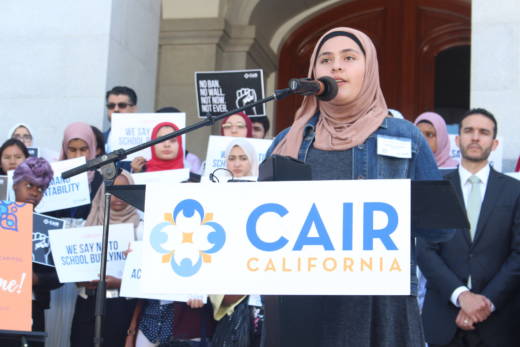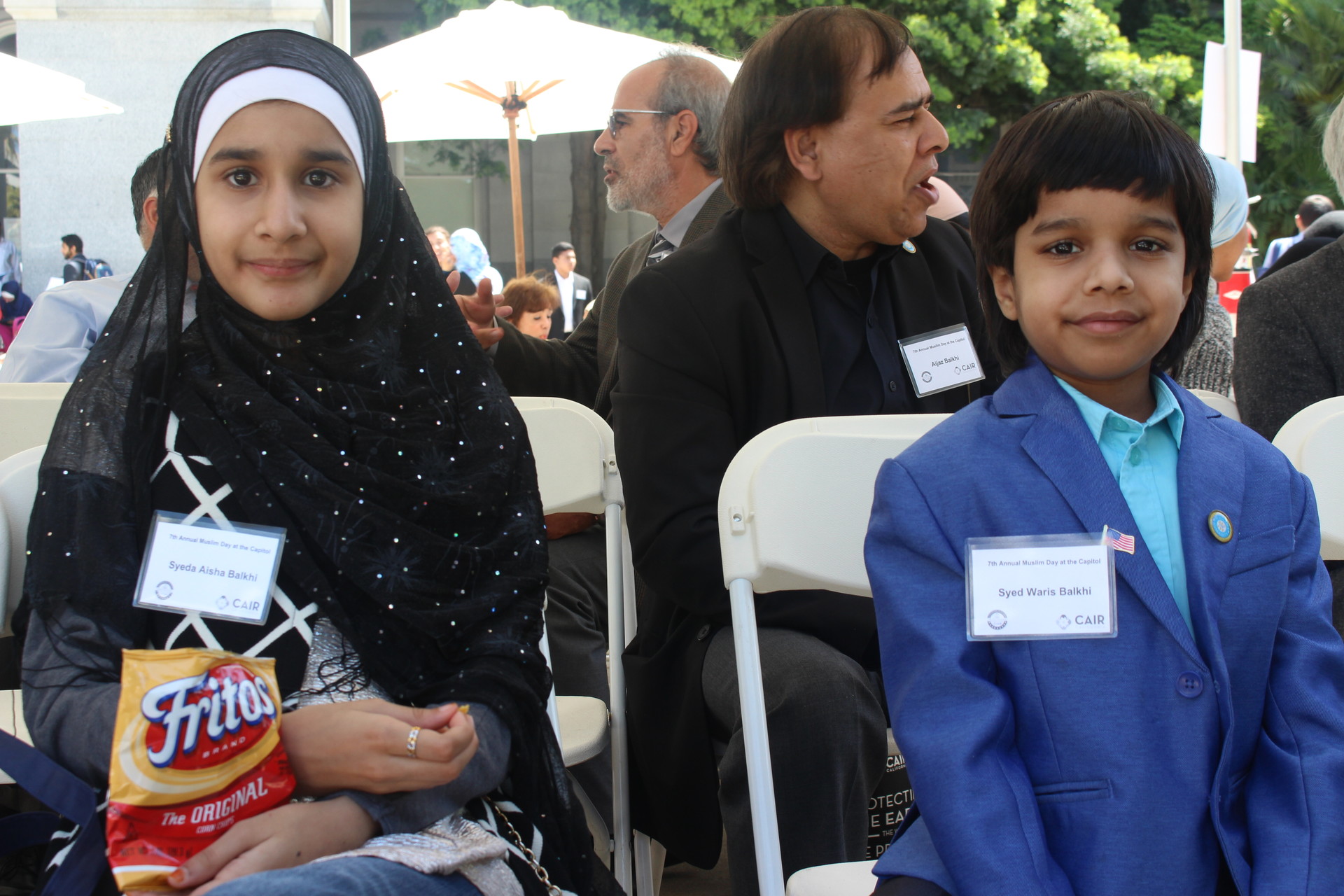As the Supreme Court debates the constitutionality of President Trump’s travel ban, which opponents believe targets Muslims, hundreds of California Muslims lobbied their lawmakers in Sacramento this week for new civil rights protections at the state level.
The families and students who converged on the state capitol say stronger protections are needed as Muslims face an increasingly hostile climate, in part fueled by Trump’s rhetoric and policies, including the travel restrictions barring citizens of several Muslim-majority nations.
Harassment, bias and violence against Muslims increased by 17 percent last year, to nearly 2,600 cases nationwide, according to a new report by the Council on American-Islamic Relations. A third of all cases the organization documented were in California.
Participants in the annual Muslim Day on April 23 at the California Capitol pushed for several bills, including one that would require the state Department of Education to establish bullying prevention guidelines for all schools. The bill, AB 2291 by Assemblyman David Chiu (D-San Francisco), would also require schools to offer annual training to teachers and counselors to create a safe learning environment for Muslim students as well as LGBT, immigrant and other kids who may be subject to bullying.
Yasmine Nayabkhil, 12, a Sacramento-area student, came with her mother and sister to support Chiu’s bill. She said she was picked on and called a “terrorist” in elementary school after she decided to start wearing her hijab, or head scarf. She sometimes ended the day in tears.


